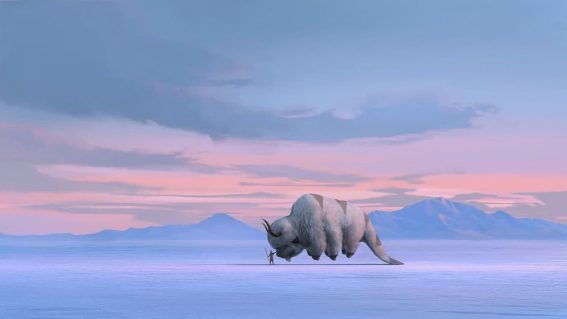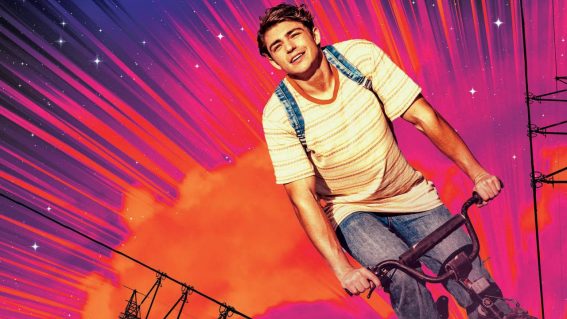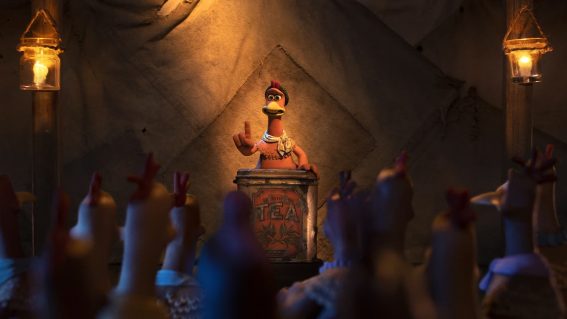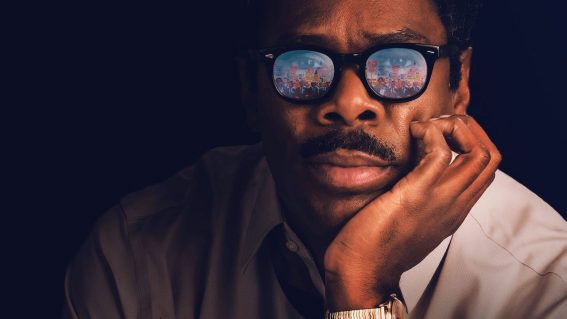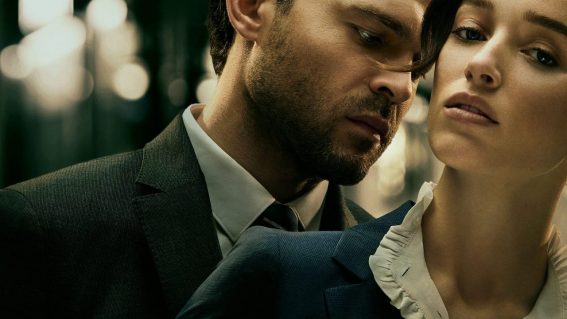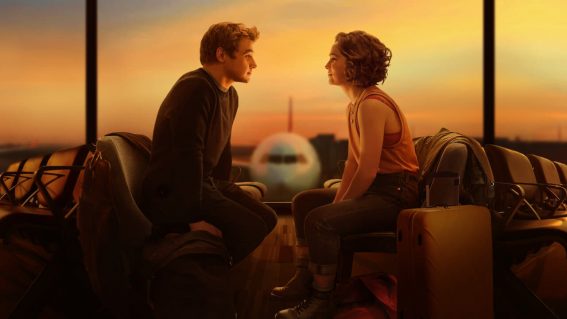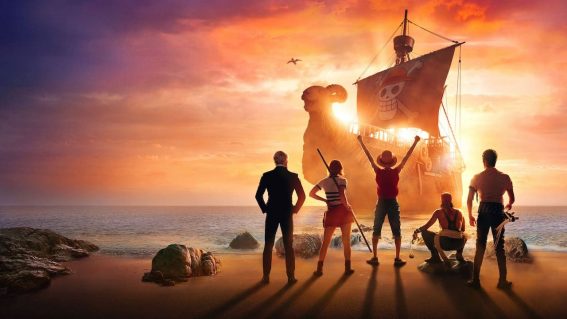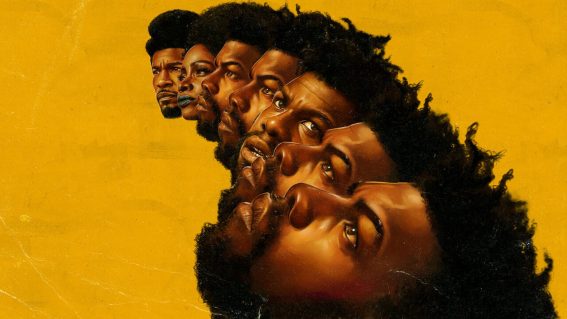Brie Larson’s rainbow-coloured Unicorn Store is an insightful tale of female arrested development
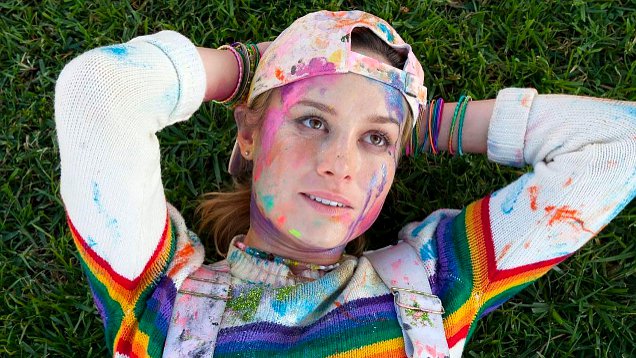
Brie Larson’s directorial debut is an overtly quirky story about a young woman who is kicked out of college and encouraged to grow up. There’s no subtlety in the film’s heavy use of glitter and whimsy, but Sarah Ward says Unicorn Store is an insightful view of arrested development.
Whenever Brie Larson calls for inclusivity in film criticism, a topic she’s discussed several times, her sensible comments earn an all-too-predictable response from certain corners. To the easily threatened, broadening the pool of voices is the same as eradicating male reviewers altogether – just as adding female characters to any franchise (Star Wars, Marvel and Ghostbusters, to name a few high-profile instances) is apparently an affront to their childhoods.
There’s no excuse for such small-minded reactions, but there are many reasons for them. One is explored in the very genre that Larson has chosen for her directorial debut. Arrested development, Peter Pan syndrome and never wanting to grow up have furnished enough movies to become their own category, and it’s no coincidence that they’re thriving at a time when never needing to farewell your adolescent pop culture favourites (and your adolescence) has become the status quo. Overwhelmingly, the majority of films on the topic focus on male protagonists.
Unicorn Store grapples with this incredibly familiar subject, but does so from a rare female perspective – a perspective slowly growing in number, but still lagging significantly behind manchild movies. That it is still notable when a film depicts women as immature, uncertain about their lives, unwilling to act their age or far from eager to face their futures says plenty, especially as male versions keep piling up. Slackers and stoners with a group of similar buddies but no luck with the ladies: that’s what arrested development typically looks like on-screen. Loveable loners with a unique way of seeing the world and complete disregard for society’s expectations: that’s how being an outsider tends to appear. Blonde-haired, rainbow-loving art students donning colour-coordinated ensembles and dreaming of having a unicorn as a pet: that’s usually the domain of manic pixie dream girl love interests.
Twenty-something Kit (Larson) fits the latter description, but she’s no object of affection. Rather, she’s a young woman freshly kicked out of college for literally colouring outside the lines – extending her technicolour self-portrait from the canvas to the wall, and even to her face and clothing – who doesn’t know what to do next. Her counsellor parents (Joan Cusack and Bradley Whitford) are supportive, but suggest that it’s time for her to put away childish things, and to perhaps even start dating their star employee Kevin (Karan Soni). Kit’s response: sign up for a temp agency, get a job making copies at a PR firm and, to use her words about finally drinking coffee, try harder to like something disgusting.
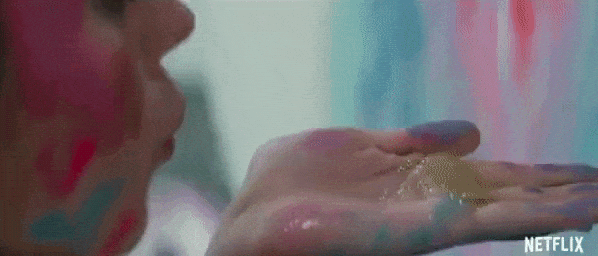
Working with a script by Samantha McIntyre (an executive story editor on short-lived TV series Married), Larson gets ample early mileage out of contrasting Kit’s wonder-filled mindset and the grey reality of life around her. Her visual choices, as lensed by cinematographer Brett Pawlak (who also shot the Larson-starring, Destin Daniel Cretton-directed duo of Short Term 12 and The Glass Castle), demonstrate an eye for colour, especially when juxtaposed with naturalistic surroundings. Her performance, along with those she’s directing (such as Hamish Linklater as Kit’s new boss), is half a step off the expected beat and yet still grounded in recognisable traits. It’s all very twee and overtly quirky, both in a celebratory and satirical way; however the meaning behind Larson’s method shines brightly. From its first moments until its last, Unicorn Store stresses that a film about a woman shying away from the markers of maturity should look and feel like its own unique creation.
Then, via sparkling handmade invitations, a space that could double as an Instagram-friendly pop-up museum and a pink-clad, smooth-talking salesman (Larson’s Kong: Skull Island and Captain Marvel co-star Samuel L. Jackson, channelling both Willy Wonka and Elton John), the prospect of befriending a unicorn becomes real. Kit is thrilled, and couldn’t be more eager to fulfill the pre-purchase conditions, enlisting local hardware store employee Virgil (Mamoudou Athie) to build a stable, endeavouring to make the most of her bland job and attempting to wade through her baggage with her parents. Drama is hardly evident in any of these tasks, but there’s no shortage of examples showing how Kit’s viewpoint always seems out of sync with the world around her. While Unicorn Store is making a very obvious point – that reconciling being yourself with being an adult is never easy – it’s also conveying another powerful message: that the struggle for women is different to the male equivalent.
There’s no subtlety in the film’s heavy use of glitter, rainbows, mythical creatures and whimsy, an aesthetic and approach that speaks to one version – and certainly not a universal version – of the female experience. But such visuals instantly stand out, as does everything that Unicorn Store’s images represent. Seeing such a candy-coloured view of arrested development is even further from the norm than female-centric takes on the topic. Indeed, there are many unicorns in Larson’s uneven but astute and insightful movie, and many applications of the term. But by embracing its unashamedly weird, offbeat, earnest and sweet personality, the feature proves one itself.
If Unicorn Store has a counterpart, it’s another movie that dates back to 2017, when the feature initially premiered at the Toronto International Film Festival. What made Brigsby Bear so engaging and refreshing wasn’t just its premise (following a man who spent his childhood literally sheltered from the world, processing life through episodes of his favourite TV show and never really growing up as a result), but its willingness to probe popular culture’s influence on the manchild phenomenon. Tonally, the two films share much in common; however the fact that Brigsby Bear is now old news, while it took Larson’s movie two years to make it from festival debut to widespread availability on Netflix, makes another statement. So too does yet another obvious truth, with Unicorn Store only seeing the light of day now because of Captain Marvel’s Larson and Jackson-starring success.


